Most folks expect their car battery to just keep working, right up until that dreaded morning when the engine won't start. It's a nasty surprise, and usually strikes at the worst possible time—like when you're late for work or it's freezing outside. So, how long does a car battery really last?
On average, you can bank on about three to five years for most modern car batteries. That's not a guarantee, though. Some poop out in two years, while others hang in there close to seven. Temperature swings, driving habits, and basic maintenance make a huge difference.
Don't buy into the myth that you can ignore your battery until it croaks. There are a bunch of signs it's heading for trouble: slow engine cranking, dim headlights, and rotten egg smells under the hood are straight-up warnings. If you catch these early, you might save yourself a headache later.
- What Determines Car Battery Lifespan?
- Everyday Habits That Shorten Battery Life
- How to Make Your Battery Last Longer
- When Is It Time to Replace Your Car Battery?
What Determines Car Battery Lifespan?
There’s no magic timer on a car battery. Several things work together to decide how long it’ll last. Everything from where you live, to how often you drive, and even what kind of car you own plays a role. If you’re driving in Scottsdale or Miami, hot weather will take a bigger bite out of your battery’s lifespan than the cold will—heat speeds up internal wear. On the other hand, freezing temps slow your battery down but usually don’t destroy it outright.
Let’s break it down. Here are the main things that affect a car battery’s life:
- Car batteries hate extreme temperatures. Heat kills them faster because it speeds up chemical reactions inside, while harsh cold makes it harder to deliver a strong charge.
- Making lots of short trips? That chews up battery life quick. Your alternator needs enough drive time to fully recharge the battery after you start up. Short hops—five minutes to the corner store—don’t cut it.
- Electrical gremlins, like headlights left on or faulty charging systems, also drain your battery quicker than you’d think.
- If your car sits for weeks, the battery slowly drains even without use. Modern cars constantly sip a little power for computers and alarms.
- The quality and type of your battery matter. Premium AGM (Absorbent Glass Mat) batteries usually last longer than standard flooded ones, but they cost more upfront.
Check out this quick comparison in years, just to get a ballpark about how long a battery can last under different conditions:
| Condition | Average Lifespan (Years) |
|---|---|
| Hot climates, heavy use | 2-3 |
| Cold climates, regular use | 4-5 |
| Mainly highway driving | 5-7 |
| Lots of short city trips | 2-4 |
| Car sits for long periods | 2-3 |
Want your battery to live longer? Park in the shade, give your car regular longer drives, and don’t let it just sit and stew. The more you drive, the happier your battery is.
Everyday Habits That Shorten Battery Life
Think your car battery just dies of old age? Nah, it’s often our everyday routines that wear it down way faster than it should. Some stuff might surprise you.
The worst culprits are short trips. Starting your car drains a chunk of battery power, but the alternator needs some time to recharge it. If you’re always just driving a mile or two to grab coffee, your battery never gets a solid boost. According to AAA, "Frequent short trips can prevent a battery from fully recharging, leading to premature failure."
"A car driven only for short distances, especially in cold weather, will experience battery drain and may not last as long as expected." — AAA Car Care Experts
Leaving lights or electronics on is another classic mistake. That means headlights, dome lights, or charging your phone—even those little things zap battery power if the engine’s off. Ever left an interior light on overnight and found your car stone dead the next day? That’s why.
Extreme temperatures eat away at batteries too. Cold makes starting tougher, but heat is even worse—it cooks the battery fluid and messes with the internal parts. Check out these stats:
| Situation | Average Battery Lifespan |
|---|---|
| Mild Climate & Regular Use | 4-5 years |
| Hot Climate | 2-3 years |
| Frequent Short Trips | 2-4 years |
Poor maintenance does a number on your car batteries too. Dirty terminals and loose connections mess with charging. If you ignore corrosion, the battery might not get a decent charge or could drain even when the car’s off.
- Parked for weeks? The battery loses charge slowly, even if it’s not being used.
- Lots of start-stop city driving? The starter and alternator work overtime, draining battery power.
- Top it off with cheap replacement parts or skipping routine checks, and the end comes much faster.
Want your battery to reach the long end of its life? Think about these habits and make a few tweaks. It’ll save you money and a whole lot of hassle.

How to Make Your Battery Last Longer
Anyone can help their car’s battery go the distance with a few easy habits. The key is keeping it healthy and catching problems before they snowball. Regular checks can literally buy you extra years before your next replacement.
First off, take your car for longer drives now and then. Short trips don’t give your battery a fair shot at recharging, so it always runs a bit low. If you mostly drive a few blocks at a time, try squeezing in a weekend cruise on the highway every couple weeks.
- Keep your battery terminals clean and snug. A mix of baking soda and water on a toothbrush melts away the white crust that can build up and mess with your electrical system.
- Turn off headlights, cabin lights, and the radio when the engine’s off. Leaving stuff running drains the battery when it can’t charge.
- Watch out for extreme temps. Scorching heat and biting cold both stress the battery’s insides. If you live where weather swings wild, consider parking in a garage or shaded spot.
- Get the battery tested twice a year, especially before winter kicks in. Most auto parts stores do this quick check for free.
- Make sure your alternator works right. A wonky alternator either undercharges or fries the battery. If your battery keeps dying and everything else looks fine, it’s worth checking.
Here’s something a lot of folks forget: don’t let the car sit for weeks without use. That can drain even the best car batteries. If you’re not driving much, hook up a trickle charger or at least start the car every few days and let it run for 15 minutes.
When Is It Time to Replace Your Car Battery?
Plenty of people wait until their car won’t start before thinking about a new battery. That’s risky and often avoidable. Car batteries rarely die out of nowhere; they throw out warning signs if you know what to look for.
Some clues you should watch for include:
- Slow Engine Crank: If your engine’s turning over slower than usual, your battery’s likely on the way out.
- Dim Headlights: If your lights look weak, especially when your car’s idling, the battery might not be holding a charge.
- Frequent Jump Starts: Needing a jump more than once or twice in a short stretch means your battery’s telling you it’s almost toast.
- Check Engine Light: Sometimes, a weak battery triggers the check engine light or a battery warning icon.
- Old Age: If your battery’s pushing past three years, it’s already on borrowed time. Most don’t last longer than five years, and using the same battery beyond that is a gamble.
Here’s a quick look at average car battery lifespans by climate:
| Climate | Average Lifespan (Years) |
|---|---|
| Hot (Southwest US, Florida, etc.) | 2-3 |
| Temperate (California, parts of Europe) | 4-5 |
| Cold (Northern US, Canada) | 3-4 |
Testing your battery’s health is easy at most auto parts stores—they’ll check it for free in under five minutes. If the voltage reads below 12.4 volts when the car’s off, think seriously about a replacement.
If you notice swollen battery sides, corrosion on terminals, or that rotten egg smell, don’t wait around. Swap it out before it leaves you stuck. Remember, keeping on top of your car batteries can save you from a lot of trouble and tow truck bills. If you’re unsure, play it safe and get a pro’s opinion. You’d rather deal with a small errand now than a not-going-anywhere car later.

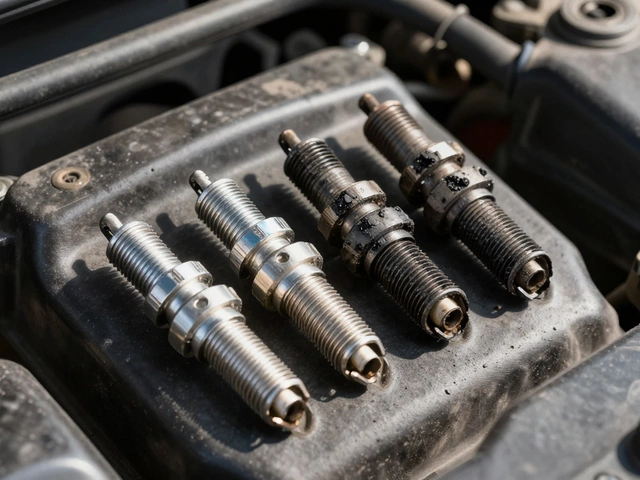

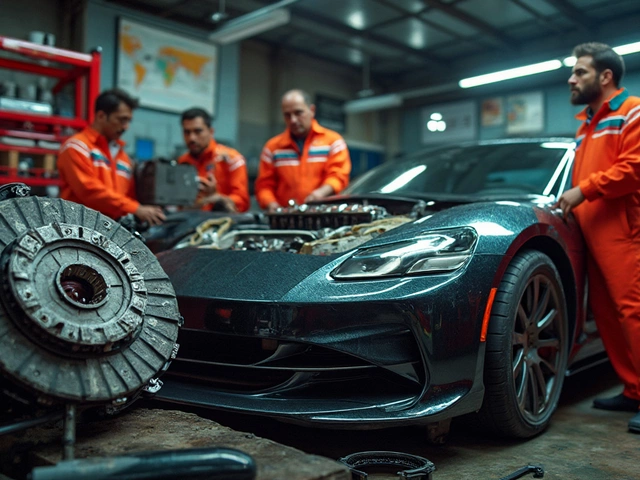
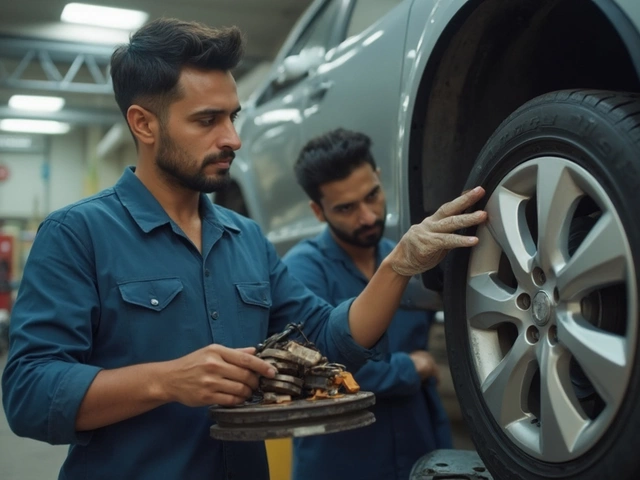
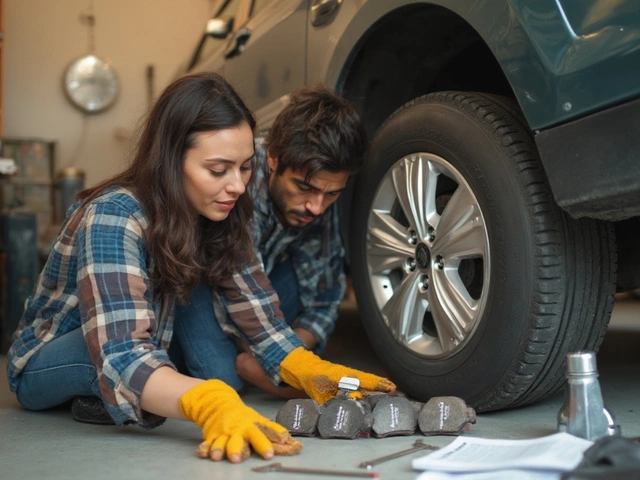
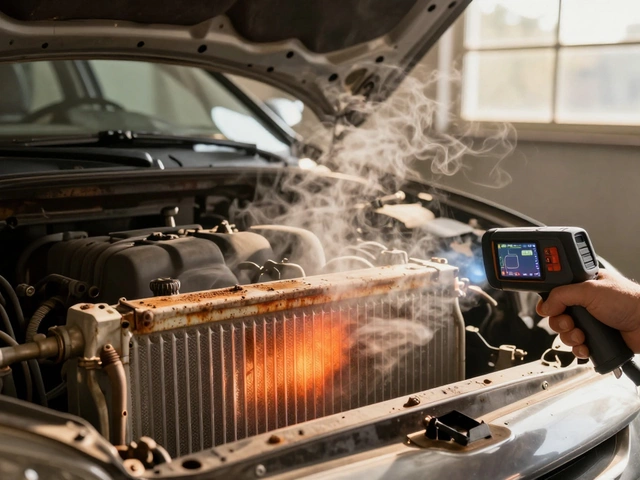
Write a comment